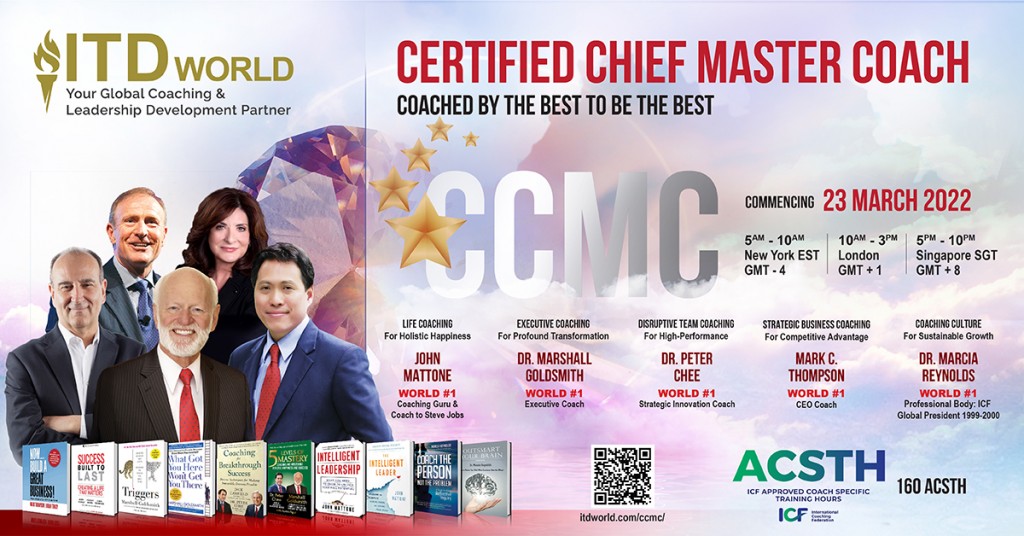

I have no special talents.
I am only passionately curious.
– Albert Einstein



Curiosity stems from knowing that we do not know and wanting to know because we know that something is worth knowing
– Jack Canfield and Peter Chee

TRANSFORMATIONAL COACHING QUESTIONS
EUREKA VIDEO
LATEST HAPPENINGS AT ITD WORLD
The latest intake for the Certified Chief Master Coach (CCMC) program is now open! This program helps leaders face the biggest challenges in talent engagement, development, and retention. Triumph over them to enable game-changing results by becoming a Certified Chief Master Coach (CCMC). Click or tap on the banner to step up to your exponential transformation and growth today!
FURTHER RESOURCES